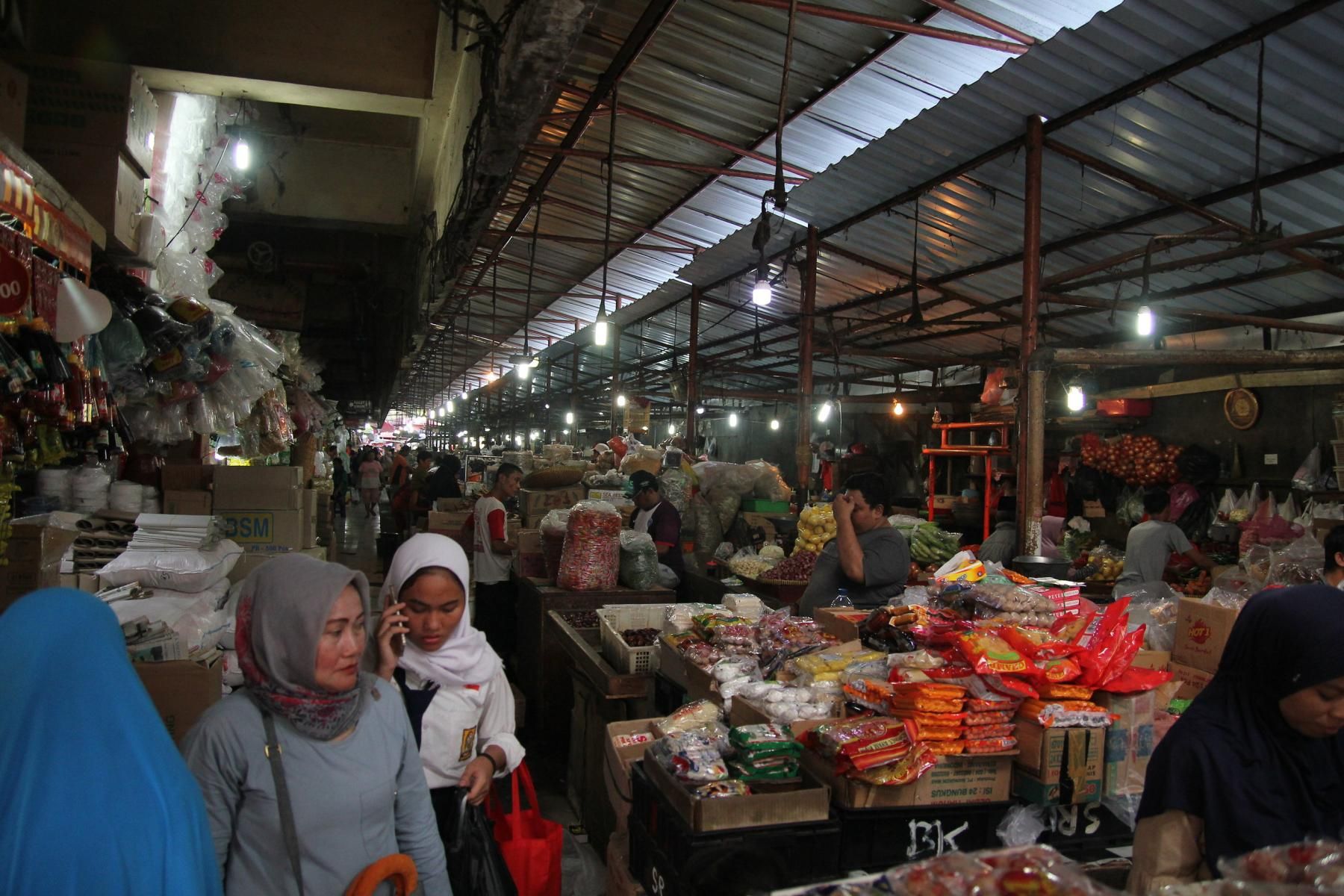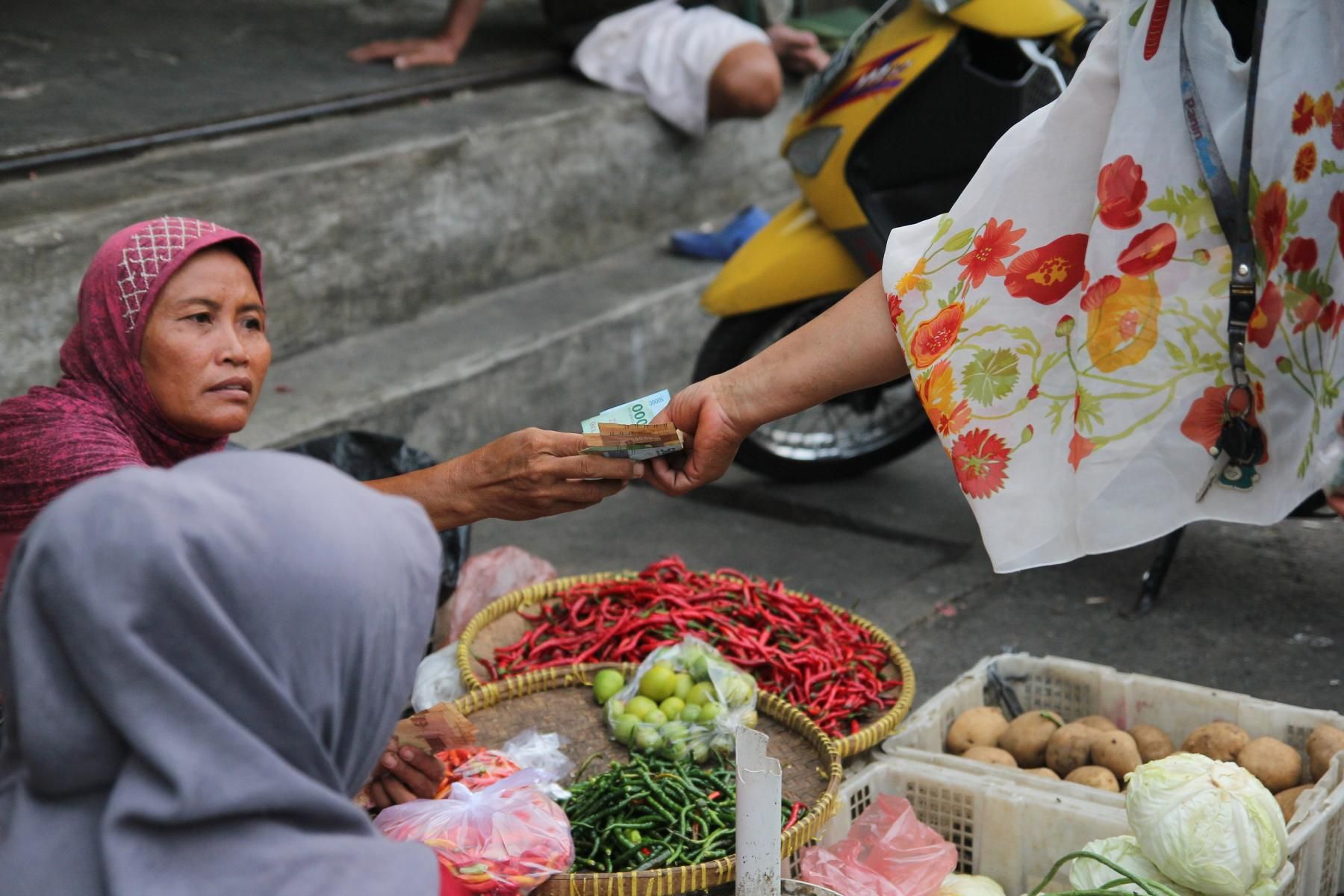JAKARTA - Director of Operations and Public Services of Perum Bulog, Tri Wahyudi Saleh, said that the availability of staples in the midst of the corona virus pandemic or COVID-19 was sufficient. To meet the availability of basic commodities, especially rice, Perum Bulog continues to absorb unhulled rice from farmers.
In a day, he said, Perum Bulog absorbed 15 thousand tons of rice from farmers in various regions in Indonesia. This figure is believed to increase in June when the farmers enter the harvest period.
"We maintain the absorption of unhulled rice and rice, where Perum Bilog absorbs approximately 15 thousand tons per day. Hopefully the peak in June we can absorb 25 thousand tons per day," Tri said in a press conference broadcast on the YouTube BNPB account, Sunday, May 17th.
This absorption, he said, was also carried out in order to maintain the availability of government rice reserves of 1 million to 1.5 million tons.
Keep up the price of sugarIn addition, Perum Bulog has distributed sugar stocks to various regions in Indonesia. In this way, Tri believes, the price of sugar can be controlled and can even be reduced to IDR 12,500 until the upcoming Eid Al-Fitr.
He also said that Perum Bulog was aggressively conducting market operations to maintain sugar prices. In each of these market operations, Bulog releases 2-3 tons per day.
"So we believe that with this market operation, Bulog will be able to draw prices towards the highest retail price (HET) and we do this in all regions so that one price is IDR 12,500," he said.
In connection with the information on the deficit of sugar in seven provinces in Indonesia, Tri explained that the distribution of sugar in these areas has been implemented. The seven provinces are Riau, Riau Islands, Bangka Belitung, North Kalimantan, Maluku, North Maluku, and West Papua.
"Regarding the deficit in seven provinces which had gone viral, only two days after it was published there were seven regions that we have carried out (distribution). Alhamdulillah, now all are available. So there is no need to worry," he said.

Previously, the Ministry of Trade (Kemendag) ensured that the food supply was sufficient to meet the needs of the community ahead of Eid Al-Fitr or Eid. So, it is hoped that the community does not need to worry.
Minister of Trade Agus Suparmanto said trading activities in traditional markets and modern retail continued to operate normally while adhering to the protocol for preventing transmission of the corona virus or COVID-19. Even so, he asked, people do not shop excessively or panic buying.
"Still, don't panic buying and shop as necessary because I guarantee that all the goods are available in sufficient quantities at affordable prices," he said in a video conference with reporters, Thursday, May 14.
Apart from the Minister of Trade Agus, the Coordinating Minister for Economic Affairs Airlangga Hatarto said, ahead of Lebaran for some food commodities the prices are fixed or stable. Even if there is an increase or decrease in price it is not significant.

Airlangga explained that there are several commodities that receive special attention, such as sugar and onions. The price of white sugar in the market reaches IDR 17,000 - IDR 17,500, it should be IDR 12,500. Meanwhile, the price of onions is around IDR 51,950 per kilogram (Kg), whereas the reference is IDR 32,000.
"Regarding the price of sugar, there are several imports that are scheduled to be delayed, because there are several countries that have implemented a lockdown. However, we will also divert refined sugar to the market, so the price will be pushed down," he said.
Furthermore, Airlangga said, based on existing data for garlic, the import plan had already entered the field. Meanwhile, for shallots there is no plan for imports.
"Because (onions) there are areas in Indonesia that are capable of large production," he said.
According to Airlangga, in April 2020, based on data from the Central Statistics Agency (BPS), there was food deflation of 0.13 percent, and this shows that demand is decreasing. However, food inflation in April 2020, which amounted to 5.04 percent, was higher than inflation in the same period last year which was 2.29 percent.
"So, this is a distribution problem that needs to be pushed (from production centers to consumers). I also want to remind (people) who take advantage of the situation (increasing food prices) have been monitored by the Food Task Force, including the issue of sugar auctions," he concluded.
The English, Chinese, Japanese, Arabic, and French versions are automatically generated by the AI. So there may still be inaccuracies in translating, please always see Indonesian as our main language. (system supported by DigitalSiber.id)








